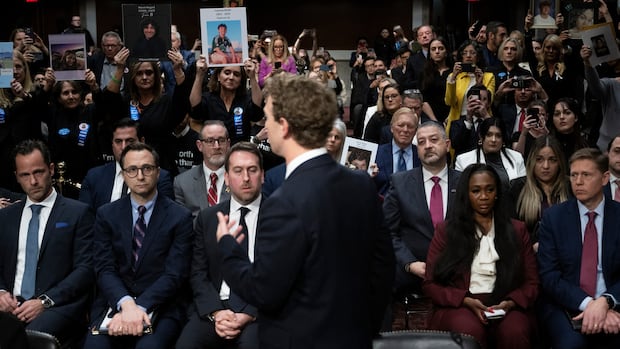Zuckerberg's Regret on COVID Censorship and Free Speech Issues
Discover Zuckerberg's regret over COVID censorship and the critical balance between public health measures and free speech in social media governance.

Key Points
- Zuckerberg revealed that the Biden administration pressured Meta to censor specific COVID-19
content, which he now regrets.
- The need for responsible information governance during crises highlights the tension between public health and free speech.
- Zuckerberg emphasized a commitment to neutrality and accountability in the face of political pressures affecting social media platforms.
The pandemic has not only altered our daily lives but has also ignited significant debates surrounding content moderation on social media platforms. Recently, Meta CEO Mark Zuckerberg publicly acknowledged the pressure from the Biden administration to censor certain COVID-19 related content on
and
. This revelation raises essential questions about the balance between public health and free speech during a crisis. Understanding these dynamics is crucial as we navigate the complexities of information dissemination in our digital age.
The Pressure to Censor
In a letter addressed to Republican Congressman
, Zuckerberg disclosed that senior officials from the Biden administration, including those from the
, had "repeatedly pressured" Meta to censor specific COVID-19 content. This included even humorous posts that ostensibly posed no harm. Zuckerberg stated, “I believe the government pressure was wrong, and I regret that we were not more outspoken about it”. This admission highlights a significant dilemma faced by social media companies: how to manage the overwhelming influx of information while maintaining integrity.

Additionally, Zuckerberg reflected on the choices made during a tumultuous time, recognizing that with the benefit of hindsight, different decisions would have been preferable. Specifically, he mentioned how Meta decided to label posts with misinformation alerts and even delete some content questioning the effectiveness of vaccines or the origins of the virus. These actions, taken to safeguard public health, inadvertently triggered accusations of censorship, particularly among conservative critics.
The Importance of Free Speech
What stands out in Zuckerberg's letter is his strong assertion that content standards should not be compromised due to political pressure. He stated, “We should not compromise our content standards due to pressure from any administration in either direction”. This sentiment resonates with current discussions about the role of tech companies in shaping public discourse, especially during election cycles.
The implications of Zuckerberg's admission extend beyond just Facebook. The ongoing battle over free speech has intensified as new technologies—like artificial intelligence—offer unprecedented methods for spreading misinformation and manipulating content. This reality necessitates a careful, nuanced approach to regulation that respects both public safety and individual expression.
Keeping the Focus on Governance
Amidst the controversy, the White House defended its actions by emphasizing the need for responsible behavior in the face of a public health crisis. Officials stated, “We believe tech companies and other private actors should take into account the effects their actions have on the American people”. This statement showcases the government’s commitment to public health while also acknowledging the steps social media platforms must take in handling information responsibly.
The
story serves as another illustrative case. Zuckerberg admitted that Facebook made an error by demoting a
article pertaining to Hunter Biden’s business dealings, initially taken down under the pretext of avoiding potential Russian disinformation influence. Zuckerberg noted, “In retrospect, we shouldn’t have demoted the story”, pointing to a transparent acknowledgment of mistakes made in the name of caution.
A Call for Neutrality
As discussions continue regarding content moderation, Zuckerberg announced his intention to avoid future contributions to electoral processes through the Chan Zuckerberg Initiative, the philanthropic effort he co-founded with his wife,
. His ambition to maintain neutrality is admirable but raises the question: Can tech giants truly remain neutral in a politically charged environment? As misinformation proliferates, the need for balanced platforms becomes increasingly critical, but striking that balance remains a daunting task.
The essence of Zuckerberg's letter is not just about regret; it is also a plea for accountability. As social media continues to evolve, the challenge of balancing free speech with responsible governance will only grow. Zuckerberg’s reflections serve as a reminder of the profound influence tech companies wield over our shared narratives and the critical need for them to act with intention and integrity.
The journey ahead is uncertain, but through open dialogue and scrutiny, we can ensure that the pitfalls of the pandemic's early days inform a more balanced and fair digital ecosystem moving forward.
